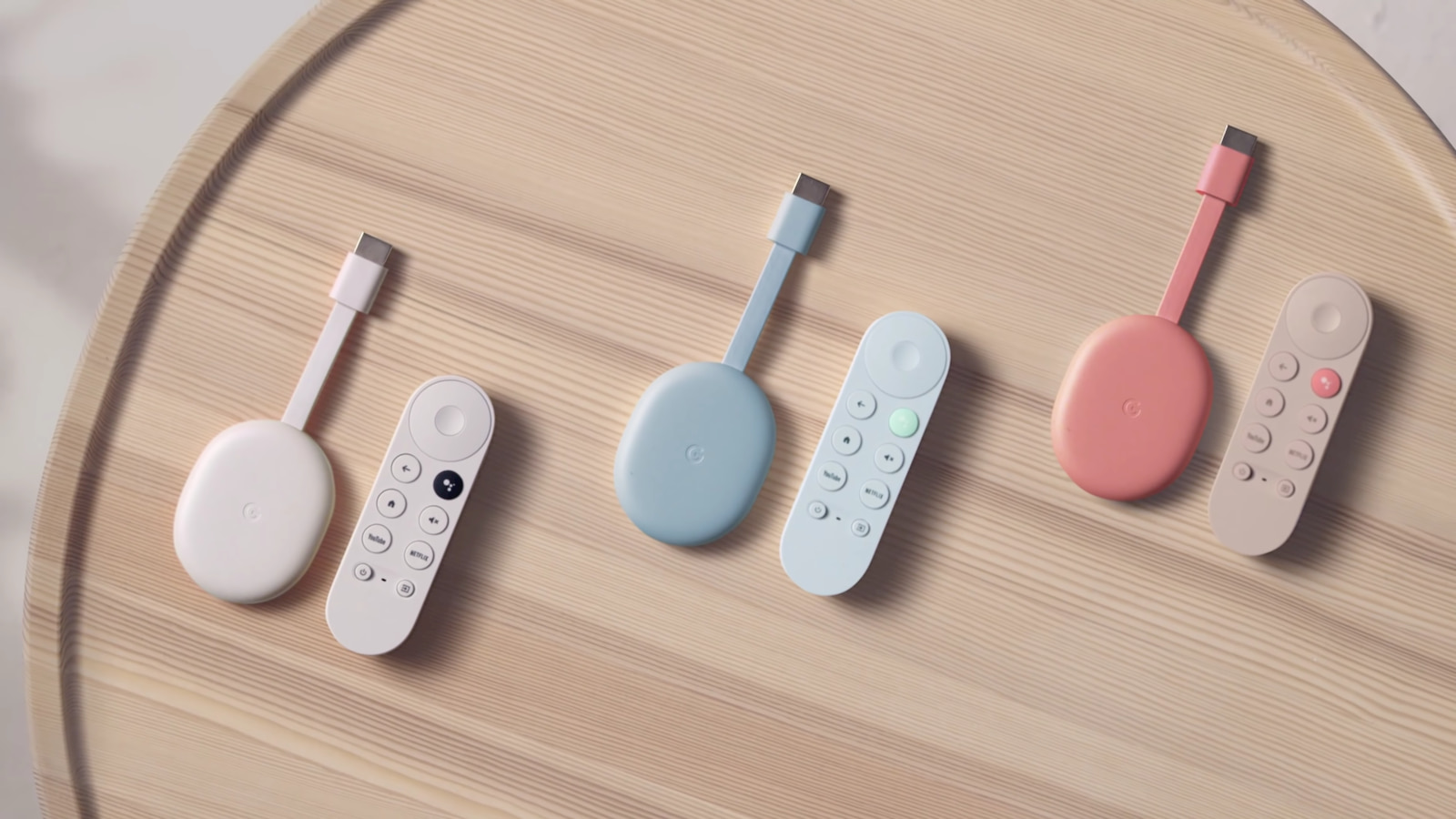
Thanks to @Za_Raczke over on Twitter, we have a pretty firm idea now of what we should expect in the rather-odd Chromecast HD that we expect to see pretty soon. While we’re not certain Google will include this device in the keynote for the upcoming October 6th hardware event, I’d wager we’ll see it in the hands-on area and in the Google Store shortly after the proceedings wrap up.
If you take the time to read through the thread above, you’ll see a few things confirmed like the ‘Chromecast HD’ naming (pointing to a 1080p device for sure) and a downgrade from the original Chromecast w/Google TV from 2GB of RAM to 1.5GB this time. Additionally, the processor is a less-competent Amlogic S805X2 chip versus the original’s S905X3. While the new chip comes equipped with AV1 decoding (which the original Chromecast w/Google TV lacks), the overall power of this chip is simply less robust.
For a device looking to enter the market at a much lower price while only outputting 1080p, those concessions make sense, I suppose. I still agree with Gabriel in saying that a new, higher-end Chromecast should be launching with this device for it to make any sense at this point in 2022, but if a super-cheap Chromecast is coming, I fully understand the cut-backs.
One very peculiar upgrade
While those specs may be a bit of a bummer, Google is at least adding a feature to this device that could undo some of the original storage issues present on the first model. While you may think that something as simple as increasing the storage size a bit would be the clearest solution, here, Google looks instead to be solving this simple issue with software instead. It’s an interesting move, but one that should work.
You see, the new Chromecast HD (or whatever it will be called) will ship with Android/Google TV 12, making it the first to do so. With that upgrade comes the ability for the OS to update in the background in a seamless A/B fashion. This means the update can download and install in a compressed form, taking up zero user-facing storage and instead operating on read-only storage partitions instead.
The paltry 8GB of storage on the original Chromecast w/Google TV means we’ll likely never see it upgraded past Android/Google TV 10 due to the inability to handle those big OS updates via partitions without some sort of hardware upgrade.
So, at launch, the Chromecast HD will have a pretty big ace up the sleeve over the existing model, and it all just feels a bit strange. We still don’t have a solid grasp on what Google’s motivation is with this device and why it would exist at all without a much better ‘premium’ option for consumers to choose. 1080p was fine a few years ago, but more and more people are moving to 4K televisions, meaning this model is already behind the curve before it even shows up. An updated 4K model to go along with it would make far more sense, but there’s no indication of this at all right now. I guess we’ll see what happens in October.


Leave a Reply
You must be logged in to post a comment.